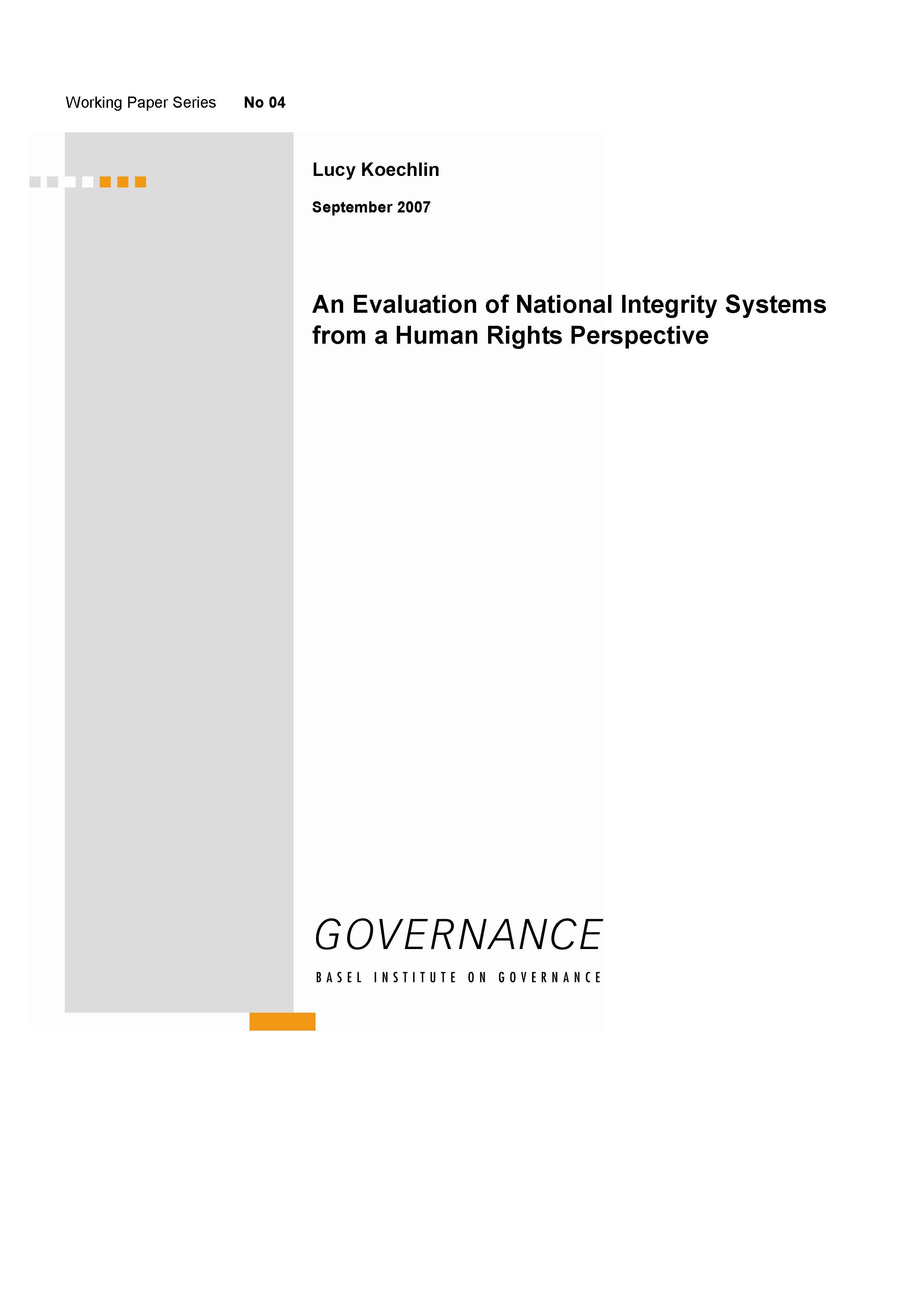Working Paper 4: An evaluation of national integrity systems from a human rights perspective
Keywords:
sustainable development, corruption research, human rights, Transparency International, National Integrity SystemAbstract
In the past decade the prevention of corruption has been recognised as a prerequisite for sustainable and equitable development. Academics, policy-makers and activists working towards such governance reforms have come a long way in the relatively short period since corruption has been actively addressed both in the North and the South.
However, corruption remains a serious problem in many societies, sectors and international transactions, affecting the lives of millions of people who go about their daily business. Transparency International, an international non-governmental organisation against corruption, was one of the first and certainly the most influential NGO to break the spell and speak out against corruption worldwide. In order to support and inform its policy approaches, Transparency International framed an approach called the National Integrity System to better understand the interdependent causes of corruption and to address them more effectively.
Strikingly, however, this approach does not draw from or have any linkages with the rights-based approach to development, which has gained tremendous momentum in the same period. This is all the more noteworthy as both the causes and consequences of corruption have obvious linkages with human rights violations.
Given this disconnection between the two discourses, the following contribution is aimed at illuminating both approaches individually with regard to their merits in preventing corruption, and trying to define synergies and potential areas of dialogue and interaction.
It is structured in the following way: first, the rights-based approach to development will be outlined briefly; second, the concept of the National Integrity System will be elaborated, with particular emphasis on, thirdly, the NIS country reports, and fourthly conclusions will be drawn from the comparison of the two approaches.

Downloads
Published
How to Cite
Issue
Section
License
Copyright (c) 2007 Basel Institute on Governance

This work is licensed under a Creative Commons Attribution-NoDerivatives 4.0 International License.

